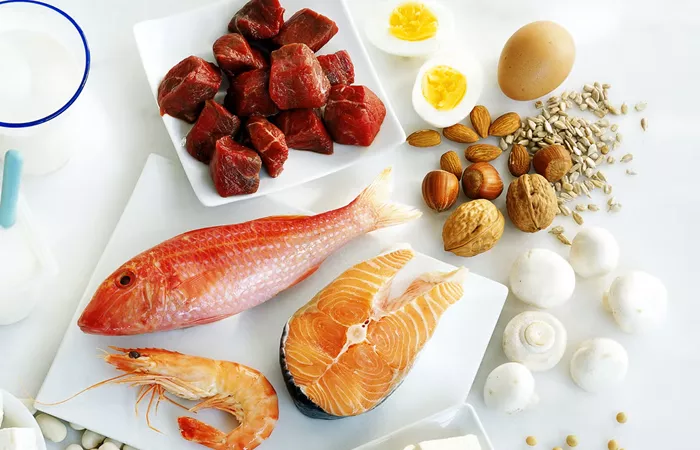Protein has become a buzzword everywhere—from social media to grocery aisles, Americans are on a mission to eat more of it. But what does “high protein” actually mean? And is it really as beneficial as the hype suggests?
What Experts Say About Protein
There isn’t a single definition for “high protein,” explains Dr. Michael Ormsbee, director of the Institute of Sports Sciences and Medicine at Florida State University. Yet, the protein craze is grounded in solid science.
Over the years, research has shown that eating more protein than the standard Recommended Daily Allowance (RDA) can help with several key health goals: supporting muscle growth, aiding weight loss, keeping you feeling full longer, and even boosting bone health.
Dr. John Carbone, a nutrition professor at Eastern Michigan University, highlights that protein can also help regulate appetite and improve your metabolism.
How Much Protein Is Enough?
The RDA for protein is 0.8 grams per kilogram of body weight—meaning a 200-pound person needs about 73 grams daily. Eating more than this qualifies as “high protein.”
Dr. Ormsbee suggests a useful range is about 0.73 to 1 gram of protein per pound of body weight for those looking to maximize health or fitness benefits. For example, a healthy adult weighing 180 pounds might aim for roughly 130 to 180 grams of protein per day.
What Does a High-Protein Meal Look Like?
A high-protein meal typically contains 35 to 50 grams of protein. Here are some real-world examples:
6-ounce grilled chicken breast with quinoa and vegetables (about 40 grams)
Three scrambled eggs with two turkey sausage links and whole grain toast (35–40 grams)
1 cup cooked lentils, ½ cup edamame, and brown rice (around 35 grams)
6-ounce salmon filet with sweet potato and sautéed greens (about 45 grams)
For snacks, experts recommend 15 to 20 grams of protein. Snacks like two hard-boiled eggs with an ounce of almonds or a small protein shake fit the bill.
Why Whole Foods Matter
While protein bars and shakes are convenient, whole foods pack a bigger nutritional punch. Whole foods like lean meats, fish, eggs, dairy, and legumes deliver not just protein but also vital vitamins, minerals, fiber, and plant compounds that promote overall health.
Registered dietitian Grace Derocha emphasizes combining protein with fiber and healthy fats for balanced, satisfying meals that support long-term wellness.
Read more:
- 650-Rep Bodyweight Workout Doubles as a Full-Body Health Booster
- How Many Push-Ups Do You Need to Build Muscle?
- How Athletes Stay Mentally and Physically Healthy?


